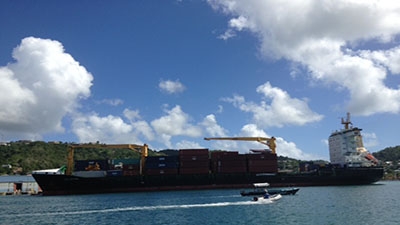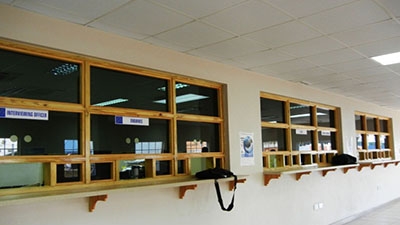Challenge
By 2008, Grenada’s growth was being challenged by the disastrous impact of two hurricanes (2004-2005), which destroyed much infrastructure and devastated agricultural exporters, and a reduced flow of international credits under the onslaught of the global financial crisis. Grenada urgently needed to create the conditions to ensure the recovery of the domestic private sector, sustain economic growth, and support the generation of fiscal revenues to finance Government programs and control the level of public debt.
Approach
To that end, Grenada needed a strategy to promote investments, develop effective systems, and speed up the processing of investment proposals. It also needed the equipment and skills to conduct product conformity assessments for exports. The Government recognized that the Customs Department’s administrative capacity to provide effective services to importers and exporters required a significant upgrade. The Inland Revenue Department also needed to improve rates of tax collection through a better information system, effective audits, and strategic management of tax administration.
The project supported development along two distinct avenues: (i) strengthening the revenue capacity of Government institutions and (ii) improving the environment for private sector investments and trade. The key recipients of support were the Customs Department, the Inland Revenue Department, the Grenada Investment Development Corporation, and the Bureau of Standards. The project focused on building strong institutions with forward looking management, strong information systems, transparency and broad access to information, and effective procedures within the Government that would reduce the administrative burden on the private sector actors. It aimed at creating an effective interface between the business community in Grenada, represented by the Chamber of Commerce, and Government institutions, led by the Ministry of Finance, so as to help minimize administrative barriers to entrepreneurship and support economic activity in Grenada and international trade with the goal of generating much needed revenues.
Results
After the implementation of the Automated System for Customs Data—World (ASYCUDA—World), the online management of customs procedures significantly improved conditions for cross-border trade. Within weeks after it became operational, the system helped to reduce the rate of physical inspections of commercial cargo from 60 percent to 18 percent. Cargo clearance times declined from four days in early 2011 to less than a day-and-a-half in June 2012. The new information system improved client satisfaction with the Customs Service. Since June 2012, clients have been able to submit their manifests electronically and follow the customs procedures online. The Inland Revenue Department has introduced an automated audit module in their information system that, following the data cleanup, helps target non-payers of taxes more efficiently.
The Grenada Industrial Development Corporation approved its investment promotion strategy, initiated baseline studies in the priority development sectors, and developed improved access to information and better (faster) services to investors. The Bureau of Standards created capacity for conformity assessment, with plans to expand its services to domestic traders. Newly acquired measurement equipment and technical skills, developed through training, enabled Grenada to issue quality conformity certificates to both exported produce and internally traded local produce and goods. All project beneficiaries enabled online access to their websites, providing core information on strategies, procedures, and services to the business community. The organizational structures of the four beneficiaries were aligned with the strategies developed with project support. Strategic management capacity was improved, as evidenced by the international recognition of the Grenada Customs and Excise Department, which was nominated for the United Nations Public Service Award in 2013. Similarly, in 2011 and 2012, the Foreign Investment Advisory Services and International Financial Corporation recognized the achievements of the Grenada Industrial Development Corporation.
Bank Group Contribution
The Bank provided a credit of US$1.9 million.

